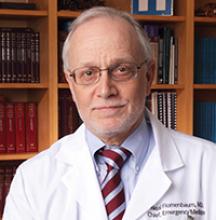The proliferation of urgent care centers (UCCs) in many urban areas during the past few years is beginning to significantly affect the practice of emergency medicine in both anticipated and unanticipated ways. The demand for rapid care of minor but urgent medical problems along with the diminishing availability of primary care providers, continued hospital closings, and overcrowded EDs make efficient, conveniently-located UCCs that accept most forms of insurance an attractive and profitable way to deliver needed health care.
In some areas, UCCs located in close proximity to hospital-based EDs are relieving the burden to divert resources from the care of seriously ill and injured patients to those with relatively minor emergencies. In other areas, however, UCCs are competing with EDs for patients who are relatively easy to care for and are a source of income that mitigates the financial burden of providing costly and poorly reimbursed care for other patients.
Freed of the need to comply with federal and state regulatory requirements imposed on hospital-based EDs -- particularly the obligation to evaluate and stabilize everyone who comes to an ED for care -- UCCs can offer less expensive care that is attractive to patients and third party payers alike. Many health insurers are now encouraging their patients to utilize UCCs instead of EDs by listing on their insurance cards lower co-payments for UCC visits directly next to those for EDs.
Many, if not most, health care providers who staff and frequently own UCCs are residency-trained, board certified emergency physicians, which undoubtedly offers prospective patients reassurance that the care provided in a store-front UCC is of the highest quality. Alternatives to UCC and ED care, such as retail pharmacy walk-in “clinics” staffed by NPs or PA’s, do not offer their self-triaging patients the safety of stabilization or treatment by trained EPs prior to transfer to a nearby ED, should the patient’s condition turn out to be life threatening or more serious than initially thought.
None of the foregoing is necessarily bad for the specialty of emergency medicine. For those who worry about the “fragmentation” of EM into subspecialty areas such as pediatric emergency medicine and now urgent care, it is worth recalling Heraclitus’ observation that change is the only thing that is constant, and that the scope and practice of EM has been expanding, not shrinking, to now include the evaluation and possible admission of many more patients referred by PMDs (See the 2012 Rand report, “The Evolving Role of Emergency Departments in the United States”), and to the provision of observation services for patients who require short hospital stays. Nor is it bad that UCCs are providing another venue for EPs to practice emergency medicine outside of EDs, i.e. to be emergency physicians instead of “emergency room doctors”
But in some cases, UCCs are beginning to jeopardize the future financial viability of hospital EDs — a shaky situation to begin with, based on a poor national model of attributing all costs, but only a small percentage of revenues to the ED. Moreover, a truly worrisome unanticipated consequence of the rapid proliferation of independent UCCs is the drain on the number of emergency physicians available to staff EDs, including many young EPs who opt for UCC positions offering higher compensation and no night duty, upon completing their residencies.
Should these trends continue, the ability to adequately staff the nation’s EDs with well-trained emergency physicians will become a severe problem. Ironically, the survival of all of the alternative venues to EDs, including UCCs and pharmacy-based walk-in clinics, depends on having well-functioning EDs to refer seriously ill patients to. This impending EP shortage should be addressed now by adjusting compensation formulas for hospital-based EPs where necessary to compete successfully with those of UCCs, and by increasing the number of available emergency medicine residency positions.

